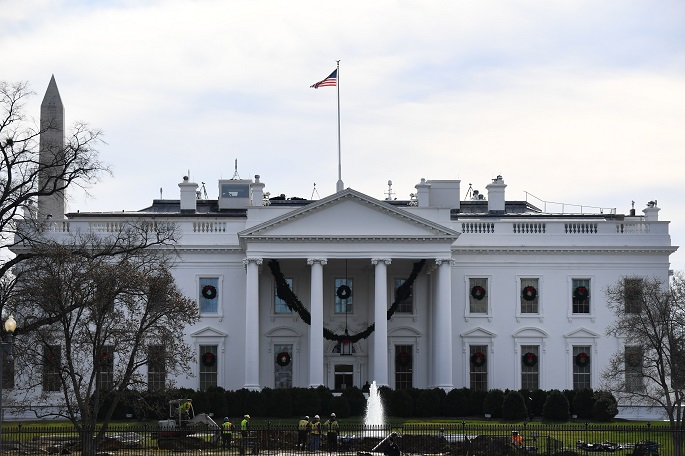WH pushes to reopen U.S. schools despite surge in coronavirus cases
Published : 08 Jul 2020, 10:19
U.S. President Donald Trump said on Tuesday the White House will push state governors hard to get schools opened in the fall despite a spike in coronavirus cases in the country, reported Xinhua.
"We're very much going to put pressure on governors and everyone else to open the schools," Trump said at a White House meeting with government officials and school administrators.
"Our country has got to get back, and it's got to get back as soon as possible, and I don't consider our country coming back if the schools are closed," Trump said.
As for the pandemic, the president stressed that death rates from the virus are going down, though experts fear they will begin to go back up soon. He also repeated his claim that the surge of new cases is a result of increased testing, while signaling that there might be political motives behind decisions to keep schools closed.
"They think it's going to be good for them politically, so they keep the schools closed. No way," Trump said at the White House event.
Trump said on Monday that presumptive Democratic presidential nominee Joe Biden doesn't want schools to open in the fall for "political reasons."
"SCHOOLS MUST OPEN IN THE FALL!!!" Trump tweeted on Monday. It's thought the school lockdown has played an active role in the downturn of the U.S. economy which is key to the president's reelection chances.
A Biden campaign official told Fox News later that the former vice president "of course" hoped students could return to school in the fall, while urging the authorities to make those decisions to keep in line with recommendations from public health experts.
On Tuesday morning, Education Secretary Betsy DeVos told state leaders that plans that included only limited in-person instruction were unacceptable, according to local media reports.
"American education must be fully open and fully operational this fall!" DeVos tweeted one day earlier.
"When it comes to reopening our schools, nobody should hide behind our CDC's (guidance) as a way to not reopen schools," Secretary of Health and Human Services Alex Azar said on Tuesday, "our guidance is to enable and empower the reopening of schools and physical attendance by our kids."
The U.S. Immigration and Customs Enforcement (ICE) announced on Monday that international students may have to leave the United States if their universities switch to online-only courses for the fall 2020 semester, warning that otherwise they will risk violating their visa status. The new rule immediately caused anxiety among tens of thousands of foreign students.
Harvard President Larry Bacow said in a statement quoted by U.S. media that the ICE decision "imposes a blunt, one-size-fits-all approach to a complex problem" and thus "undermines the thoughtful approach taken on behalf of students by so many institutions, including Harvard, to plan for continuing academic programmes while balancing the health and safety challenges of the global pandemic."
Brad Farnsworth, vice president of the American Council on Education, told CNN that the ICE announcement would create more confusion and uncertainty, questioning what would happen if the public health situation deteriorates in the fall and universities that had been offering in-person classes feel they have to shift all courses online to stay safe.
"The bigger issue is some of these countries have travel restrictions on and they can't go home, so what do they do then?" asked Theresa Cardinal Brown, director of immigration and cross-border policy at the Bipartisan Policy Center, "It's a conundrum for a lot of students."
"Kicking international students out of the U.S. during a global pandemic because their colleges are moving classes online for physical distancing hurts students," said Democratic Senator Elizabeth Warren on Twitter, "it's senseless, cruel, and xenophobic."
The Trump administration is rushing to reopen schools at a time when the country is already experiencing significant surges of newly confirmed COVID-19 cases. Almost 3 million people have contracted the virus with more than 131,000 deaths in the U.S. as of Tuesday morning, according to data from Johns Hopkins University.
Anthony Fauci, the U.S. top infectious disease expert, warned on Monday that the country is "still knee-deep in the first wave" of the pandemic and the U.S. handle of the outbreak is "really not good."


